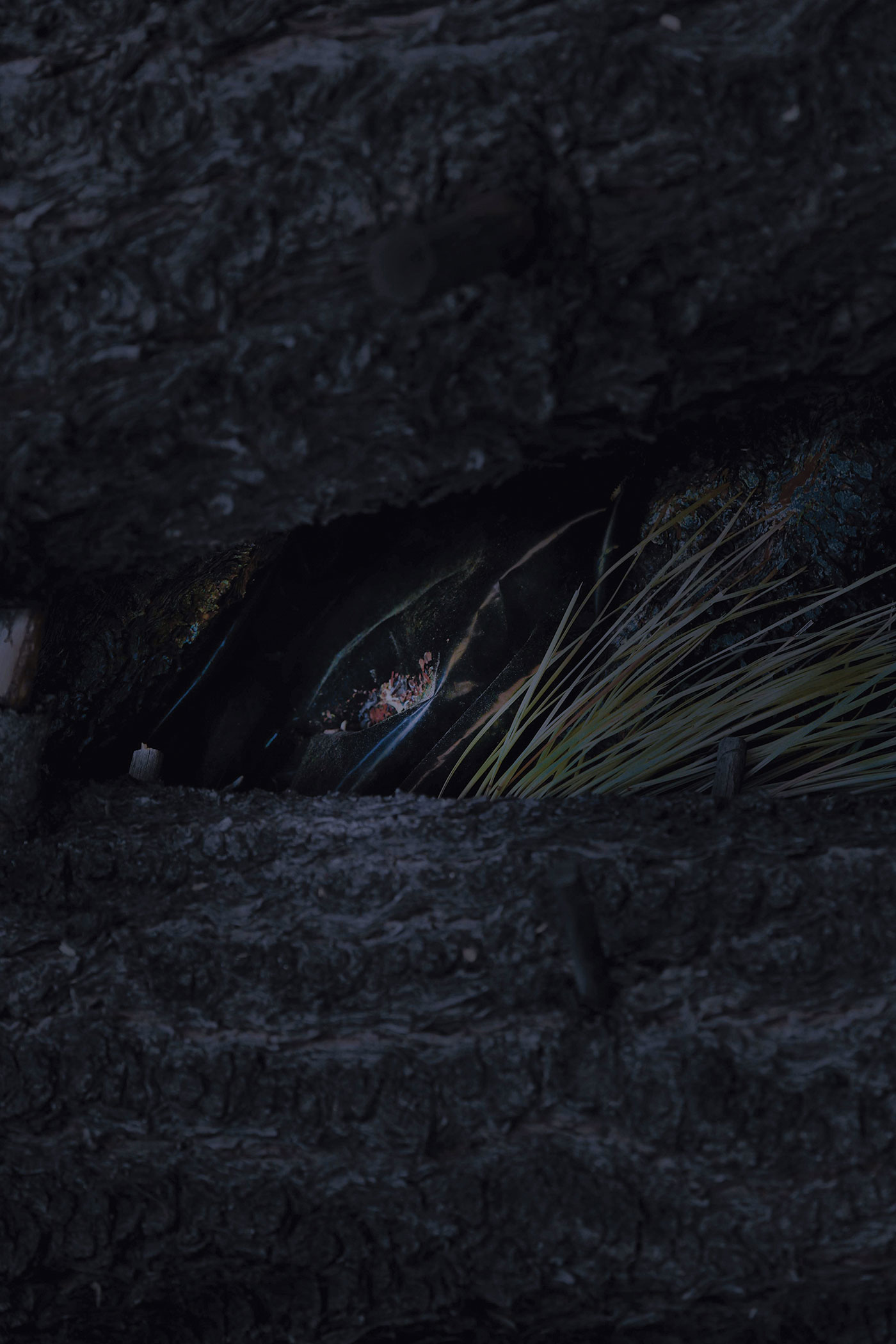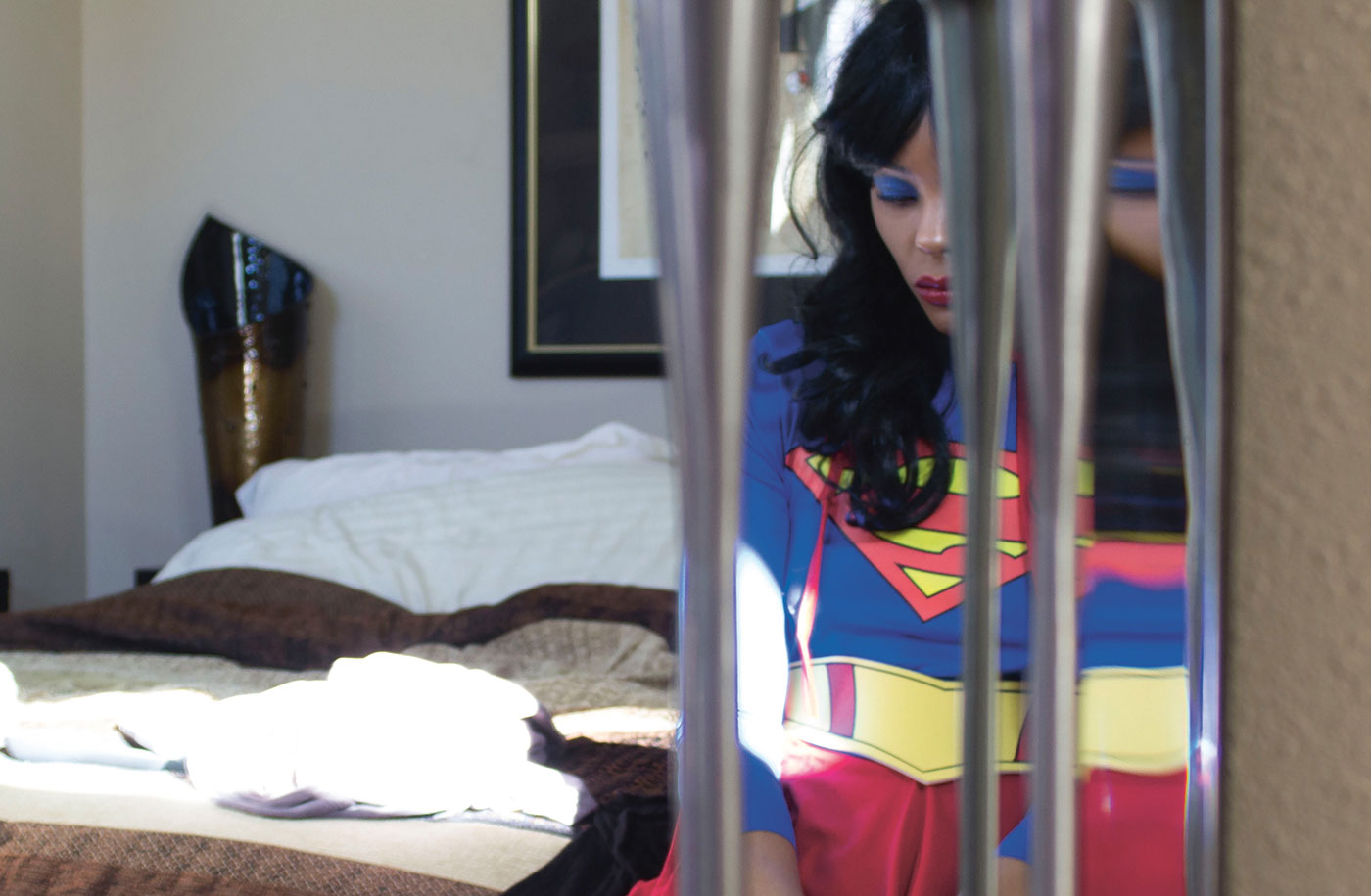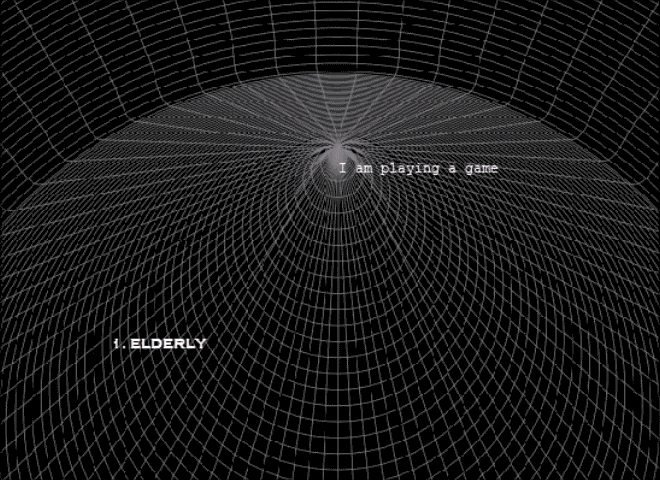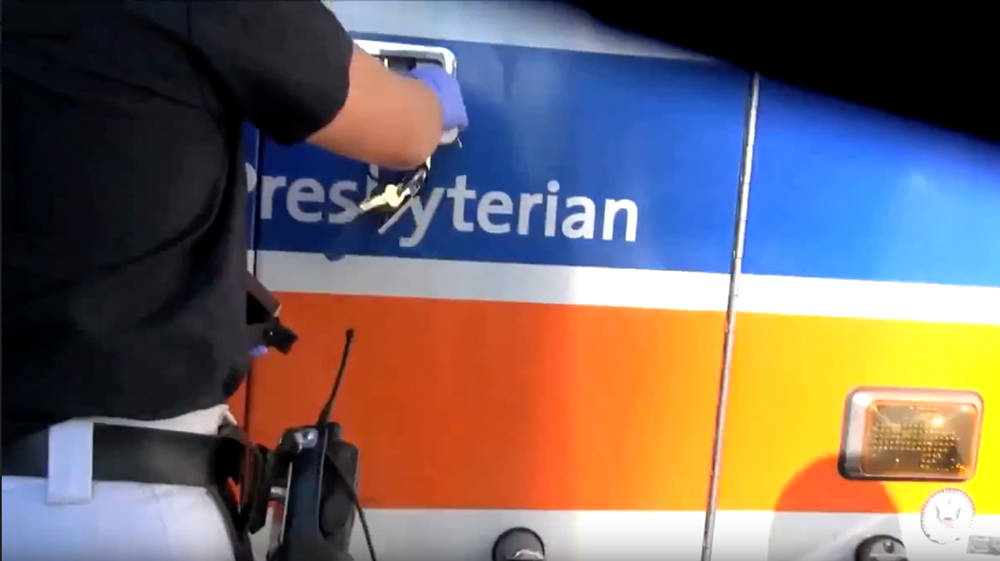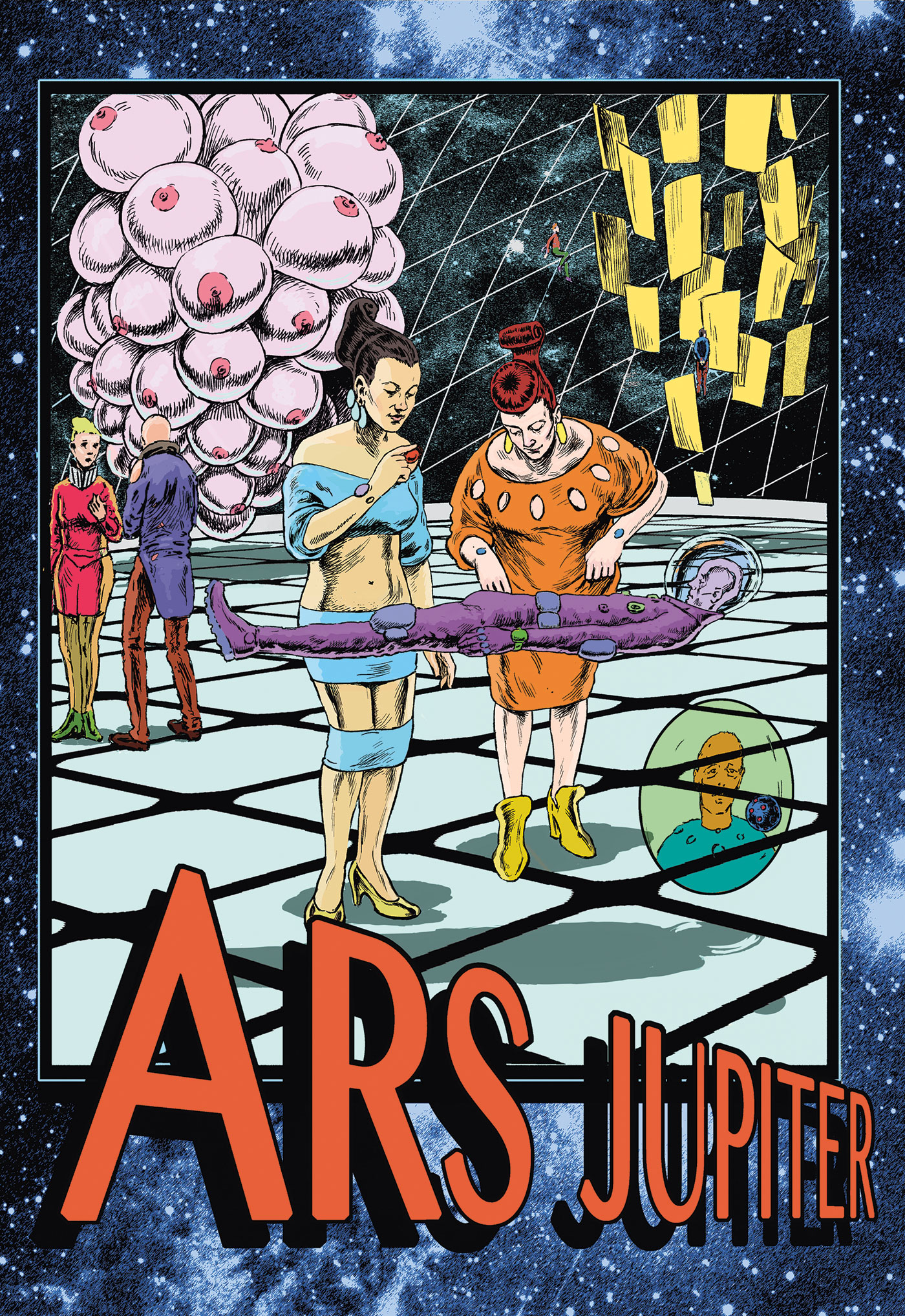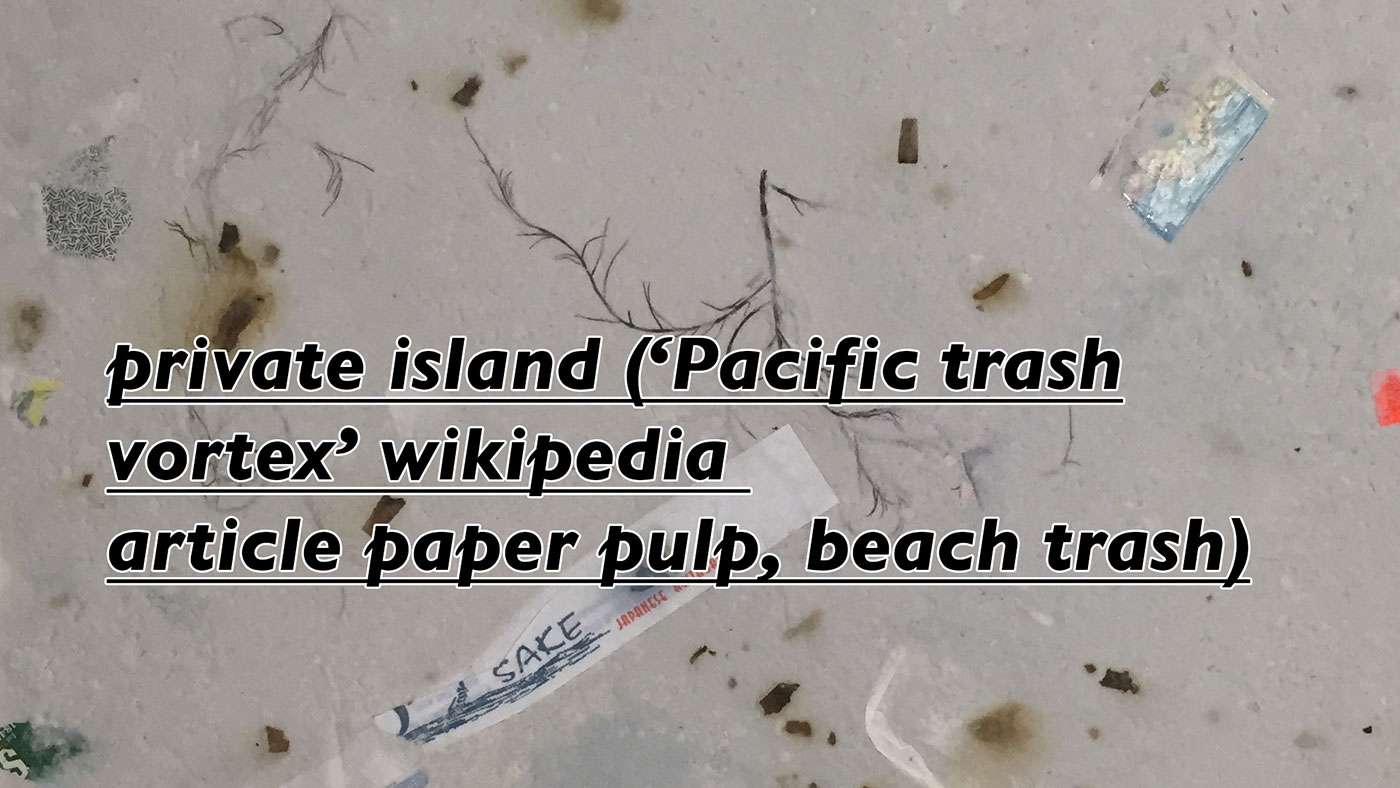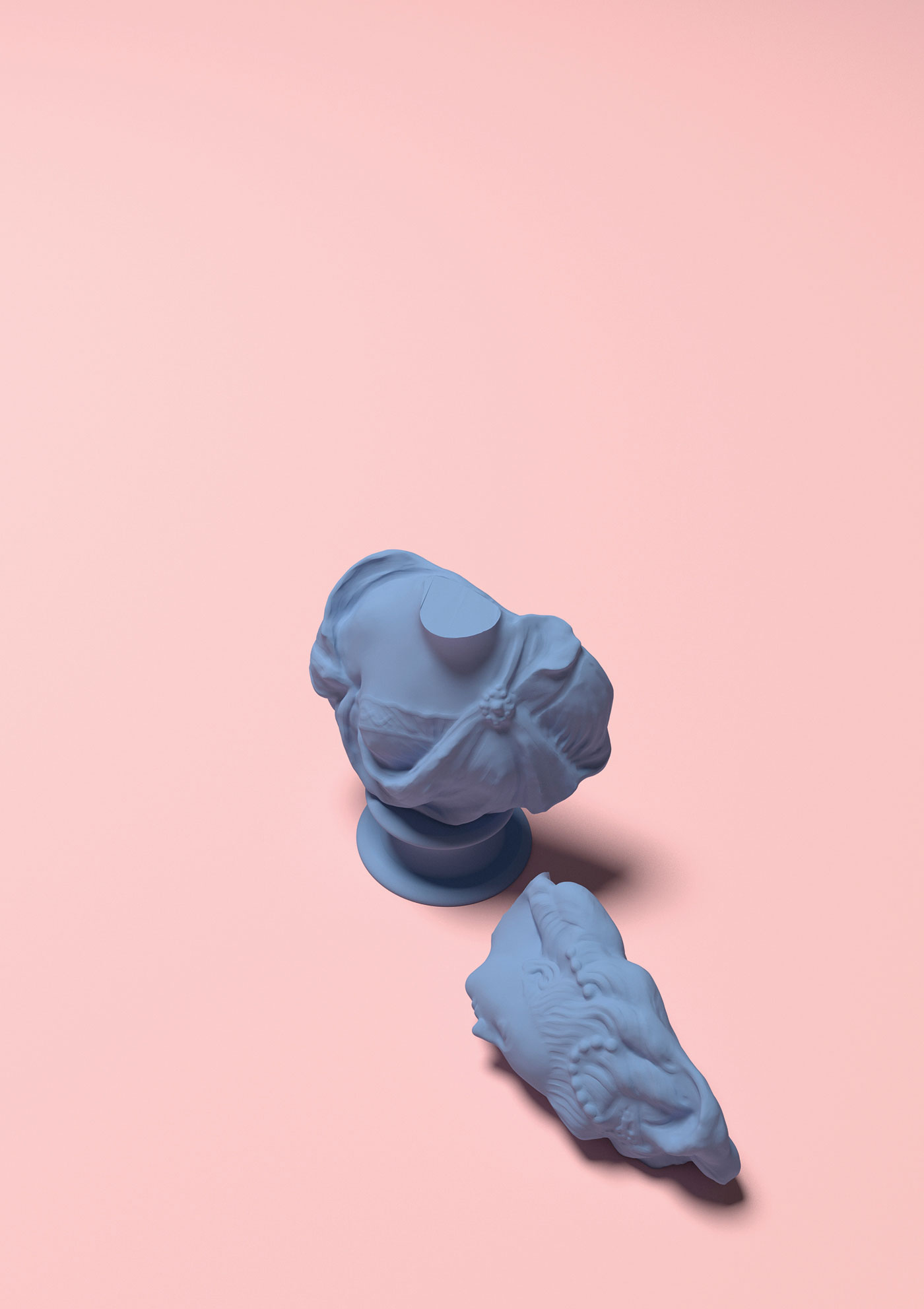The Best Ten Tips Ever
Antonio Ortega
The following is adapted from the manuscript for “The Best Ten Tips Ever In Alphabetical Order,” a theater production staged in Barcelona and Antwerp in 2009.
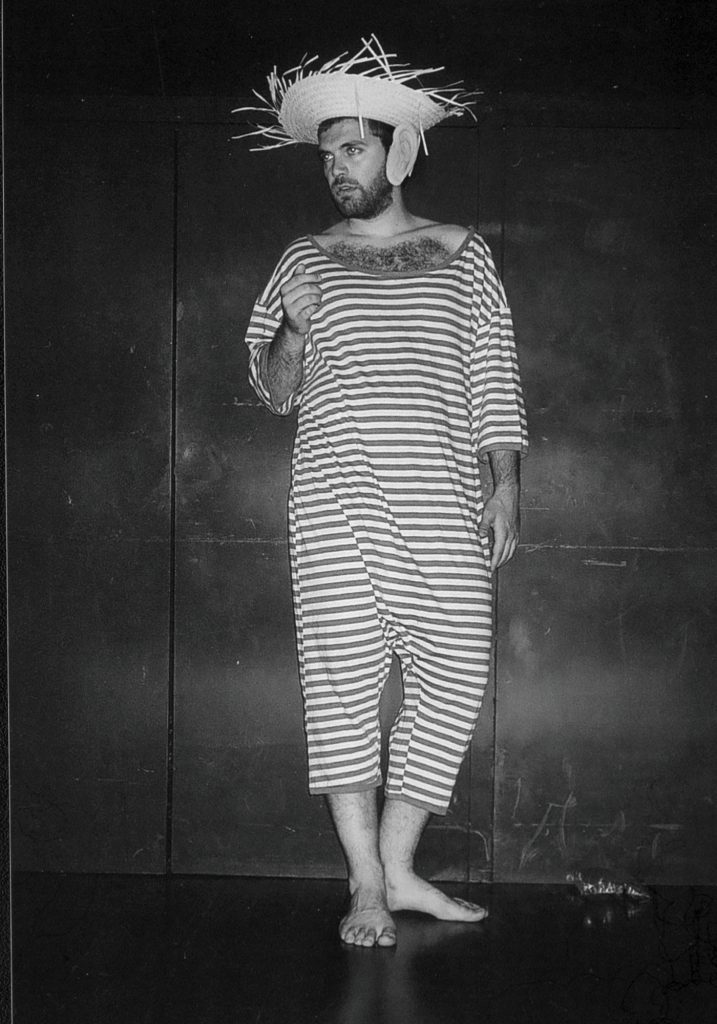
1. BE TALL
The BBC produced a program hosted by John Cleese in which the aim was to discover the factors behind physical attraction. They called on numerous experts to put forward their hypotheses. A study group comprised of young singles had to try to successfully chat each other up. Once the individuals who were taking part in the experiment had been introduced, the experts had to predict who would get in touch after the program.
The experts based their predictions on different criteria. Those with a background in empirical sciences thought people whose faces had some morphological affinity or those with very marked masculine or feminine traits would be the ones to make a match. The sociologist thought the air of self-assurance that goes with a higher social status would be a key factor. The group of self-help specialists believed self-reliance and salesmanship would be decisive.
For two days the young people interacted in one-on-one meetings and group encounters.
The professionals voiced their conclusions.
Each of the young people wrote a note saying who they wanted to meet after the program.
The professionals were wrong. Not one prediction about who would be sought after came true. To round off the experiment, John Cleese wickedly revealed the key to the mystery. One characteristic alone was sufficient to guarantee success: you had to be tall.
We can’t decide for ourselves how tall we’ll be, but we can look for solutions to the problem. A person’s public image is based on visual documents. Many more people will see a photograph in a newspaper than you could ever actually meet.
While it’s a good idea to consult a stylist about the color and cut of your clothes, taking note of how former President of France, Nicolas Sarkozy cultivates his public image will yield two crucial pieces of advice.1
First, an elementary trick: on sloping ground, always stand on the highest spot. If you’re strolling along the beach, for instance, it will be vital to walk on the side farthest from the water.
And now some more sophisticated advice. Photographs flatten perspective, they lack depth. We all know that perspective makes things in the foreground seem bigger. So what you should do is make sure you’re always one step in front, a few centimeters nearer to the camera.
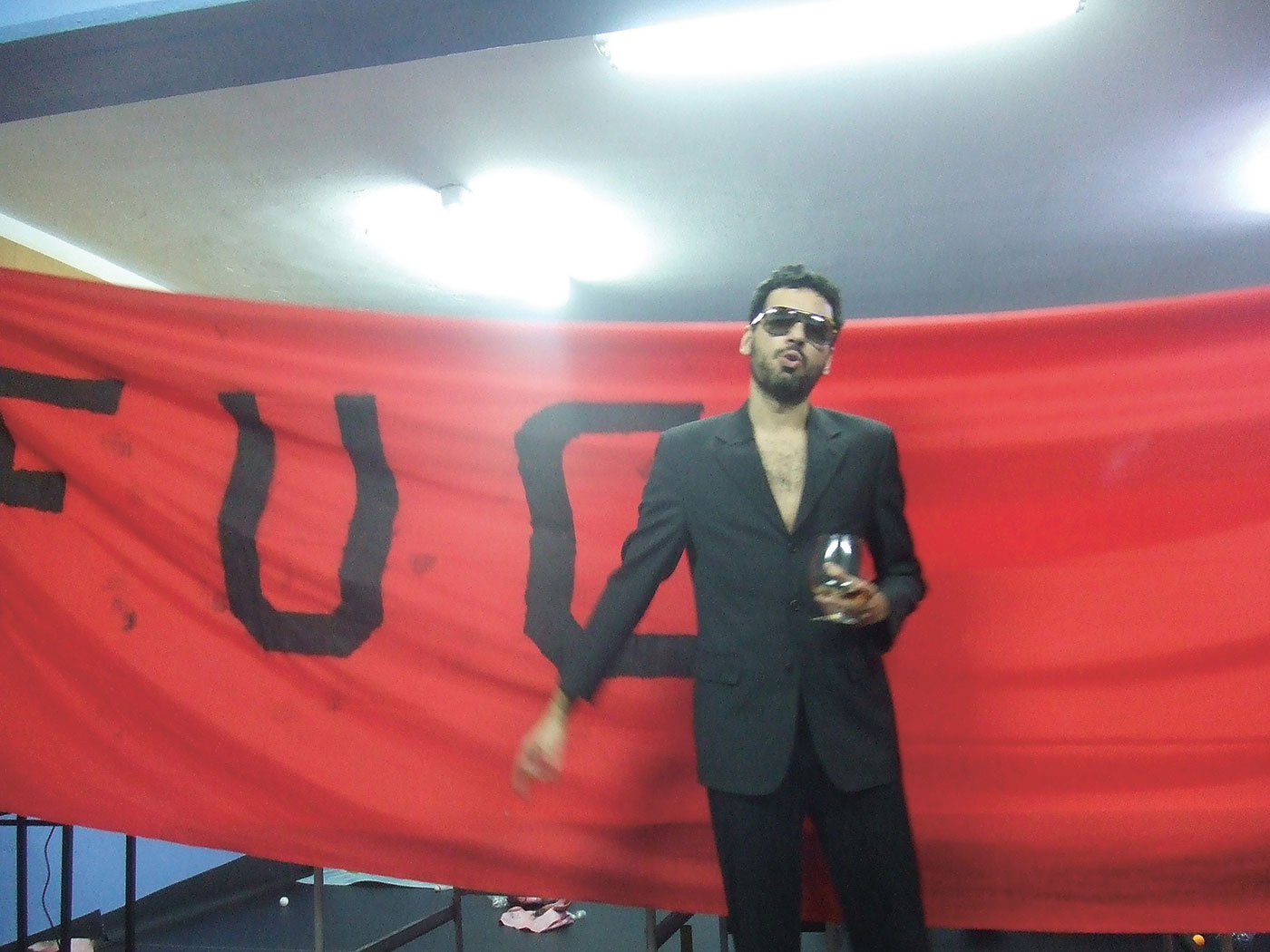
2. MEASURE YOUR COMMITMENT
Bruce Nauman claimed that everything an artist did in his studio was art, including painting his balls black. It was a way out of the debate about what art is, and allowed him to distance himself from the type of artist who claims to produce art twenty-four hours a day, three hundred and sixty-five days a year. That way, art wasn’t everything an artist did, it was only what they did when they intended to produce art. Shutting themselves in their studio was a reasonable indication that they’d decided to produce art at that particular time.
I decided to regulate my own artistic activity. In those days I wasn’t very busy and had plenty of time to spend in my studio. It was a semi-basement, so it was neither hot nor cold. I was relatively comfortable there. The only problem was that I made it a rule to work in a suit I’d bought from a second-hand shop, and the suit was a bit small for me. When I wore my suit, I looked like Joan Miró, or I thought I did. My friends agreed with me.
I planted a potato in a pot and put it in the middle of my studio. After that I installed an automatic drip watering system. Then I replaced the fluorescent lights in my studio with blue-spectrum lights, following the advice I’d been given in a flower shop.
Every time I went into the studio I switched the light on. When I left I switched it off.
The potato sprouted and grew tall and leggy. When plants are deprived of light, they think there’s something up there that’s casting a shadow on them, so they concentrate all their energy on growing a long stem to get past the obstacle and reach the light.
The potato plant grew fast. It had a white stem and stunted leaves that tried desperately to escape from the gloom.
I felt responsible for my potato plant and sometimes I’d go into my studio just to switch the light on. I’d sometimes take a book, or play squash with myself using the tennis balls that fell from the sports center next door.
Then one day the stem of the potato plant could support its own weight no longer, and it flopped onto the table, which was made of white formica.
Having given up hope of reaching the light, the potato resigned itself to a long period of semi-darkness. The underground part of a potato plant branches out into two kinds of structures: the roots, which take in nutrients, and the tubers, which develop into new potatoes. The stem, probably thinking it was under the soil, decided to become a tuber.
Nearly four months after the project began, all trace of the incipient leaves had vanished. A potato, about tree centimetres in diameter, grew at the tip of a tuber one hundred fourteen centimetres long. I pulled the plant up—no more potatoes had formed under the soil. I photographed the result.
By not overexerting myself, I’d created a rarity.
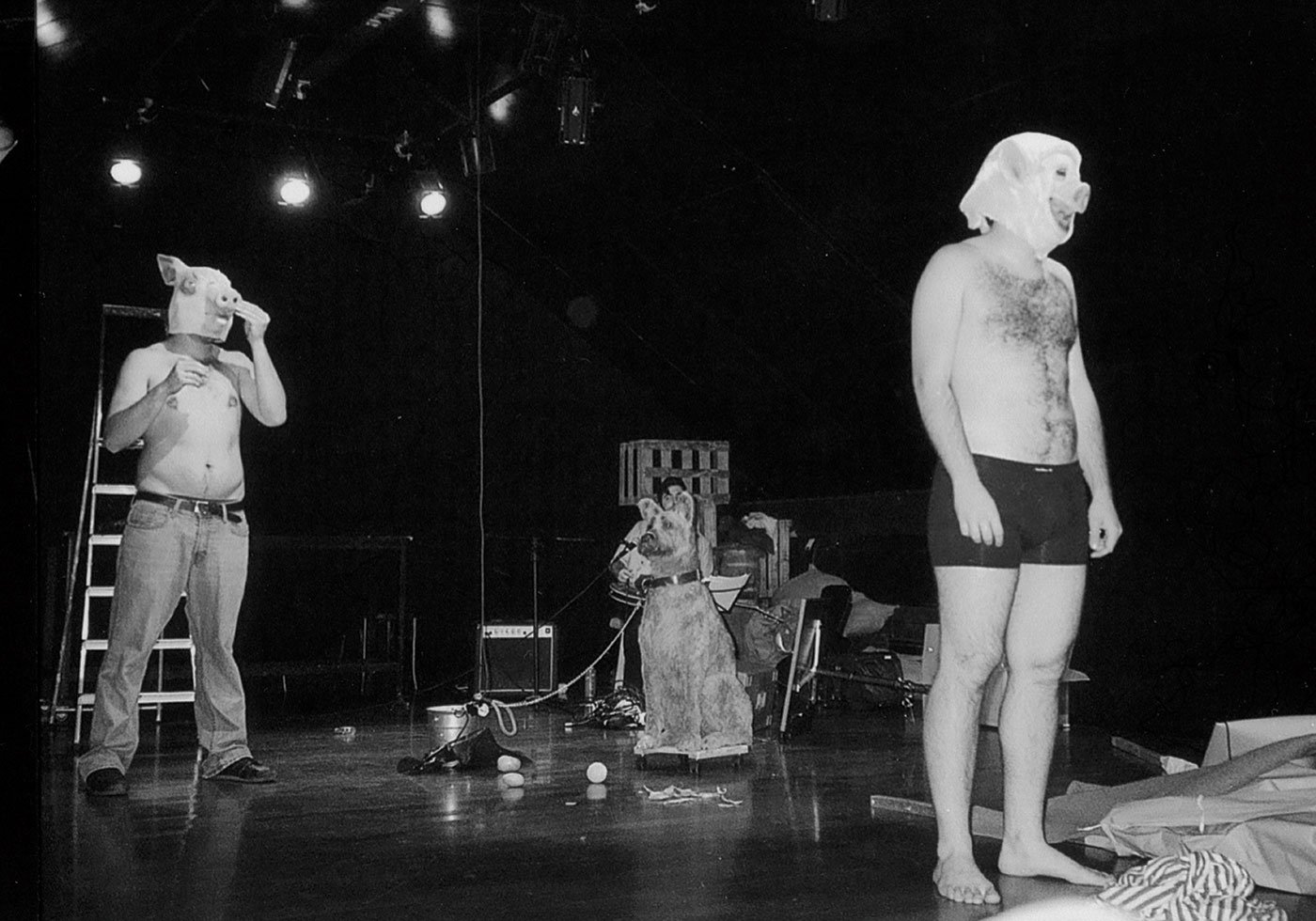
3. TALK JUST ENOUGH
I heard some enlightening dialogue in a film. A married woman was saying that people get married because they are looking for someone to bear witness to their lives. The idea was that, in order to prove you’ve existed, you need somebody else to give testimony about your life. I was convinced. It reminded me of an old friend of mine who nobody wanted to play billiards with because he always ignored his opponent’s shots.
He’d pass the time chatting or smoking, and even wander over to the bar. When he got back he’d ask if you’d scored, and if you said yes, that you’d pulled off a fantastic, incredibly difficult shot, he didn’t even listen. And so your fantastic shot was lost forever, for lack of witnesses...so what was the point?
We have to accept the fact that only very few witnesses will remember what we do. We shouldn’t feel obligated to keep everyone up to date with our affairs, as though whoever we’re talking to is interested.
There’s nothing more pathetic than answering rhetorical questions people ask you out of politeness. Like the old joke about the man who was so boring that when you asked how he was, he actually told you.
Sometimes the fear of sinking into obscurity makes us talk too much. We forget that providing information in dribs and drabs has an enormous potential for arousing true interest.
I often find visualizing some chore you have to tackle has a paralyzing effect. For instance, if I have to change a bulb in a lamp fixture on the ceiling, I usually can’t remember what kind of bulb I need. Therefore, I have to climb up a ladder and remove the old bulb so that I can buy another one like it. Then before I go out, I have to put the ladder away again, and then I’ll have to trek down to the shop, and get the ladder out again, and insert the bulb, and put the ladder away again. So when I see a bulb has blown, I visualize all these steps...and a month goes by in darkness.
So if we not only think about a project, but talk about it, time and again, it makes it seem even more tedious and discouraging! Not only will we be deterred from carrying it out, we might be just as content to relegate it to the world of unfulfilled ideas.
4. FLOW
Allow me to tell you about an enlightening event I witnessed.
An artist was staging an exhibition that was set to open the following day. It was eight o’clock in the evening and the fitters knocked off at six. The installation had gone smoothly and there was no need for haste or overtime. One of the works was a room that had been built out of wood inside the exhibition hall with walls and a ceiling and furniture and pictures. The artist had scoured a flea market to find the perfect lamp, and hung it from the ceiling in the center of this wooden room-box. The lamp had a stem in the middle which branched out into six arms with white shades. It wasn’t an antique—it was old, but in very good condition.
At eight o’clock the artist rushed in. She’d made a sudden decision. “The lamp should hang three or four inches lower.”
The man in charge of setting up the exhibition said OK, first thing in the morning, before the press conference, they’d hang it where the artist wanted. After all, it was just a matter of unscrewing it from the ceiling to make it hang a bit lower.
So the artist concluded it was easy to put right. Perhaps that was why she decided not to wait, and to fix the lamp herself.
She grabbed a ladder and climbed up to the ceiling. As she loosened the light fitting, she asked the man in charge to please tell her when it was three or four inches lower, because that was how she wanted it.
The lamp went down...and down...until at last it fell.
The artist leapt off the ladder, looked at the lamp, walked around it several times, then flung her arms open and announced, “That’s it, I’ll leave it like that—it’s a work of art!”
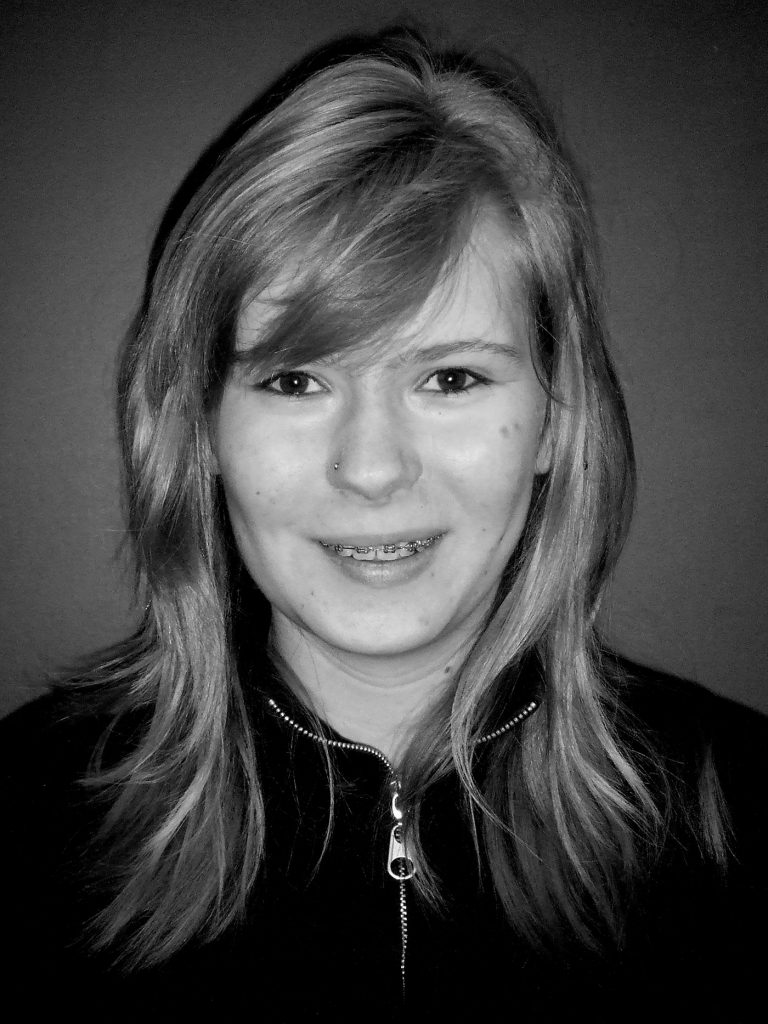
5. TURN INTO CASH
A friend of mine has a friend, and I know his friend as well. So that we don’t get mixed up, I’ll call my friend my friend, and his friend my acquaintance.
My friend told me that my acquaintance had once discovered an old Maserati in a flea market.
It was parked in an adjoining garage, it wasn’t even for sale. My acquaintance bought it at rock-bottom price and had it overhauled. Once it was repaired and spruced up, he sold it in just one day.
My acquaintance has plenty of influential contacts, but my friend rounded off his story by saying that if ever he saw some old wreck abandoned in a garage, and if he found out it was a model that was in demand, and if he had enough money to buy it, and if he was good at driving a hard bargain, the only thing he could do would be to phone my acquaintance so that he could cash in on it.
Discovery brings no value in itself, you have to be able to make money out of it.
If you drive out of Reus along the T11 and continue along the N420, it’s only two miles to Riudoms.
Reus is the regional capital of Baix Camp, a province of Tarragona, Catalonia, and has twenty times more inhabitants than Riudoms.
Both Reus and Riudoms are set in the same kind of surroundings: vineyards, hazelnut orchards, olive groves, and flourishing industrial estates. They also both claim to be the birthplace of the illustrious architect Antoni Gaudí, and both have commemorative plaques to prove it.
I know an artist who could turn this information into money. He’d only need to make a brochure showing the pictures of the two plaques.
I do wish I’d told him…
6. DON’T SMILE
Smiling is the first clue that tells people you want something.
My friend Jean pointed out to me that there are no pictures of any of the four great 20th century artists smiling: none of Picasso, or Duchamp, or Warhol, or Beuys.
I liked the story, but just as people who enjoy magic don’t go to all lengths to find out how it’s done, I wasn’t interested in finding out if it was completely true.
As time went by, I realized that there were in fact pictures of Picasso smiling. But since he sometimes smiled with his eyes, and sometimes with his lips, but never with his eyes and lips at the same time, frankly it was more frightening than reassuring.
Joseph Beuys is different. I stumbled across a picture where he really was smiling.
He was with Mrs. Beuys and the little Beuys children at Dusseldorf station, about to set off for Kassel, the first time he took part in Documenta.
The smile was a smirk of enthusiasm.
It’s extremely difficult to deliberately alter our reflex gestures. That’s basically how lie detectors work, by analyzing our grimaces and other types of information we involuntarily emit.
Regularly practicing facial gymnastics isn’t a waste of time, but having an agent represent you is much more effective.
Whether your agent is a professional, or someone you picked off the street, there are many different aspects to the job. In the interest of time, I’ll describe just the main part here.
An agent’s job has always been to resist the temptation to laugh when they quote the price you want to charge for your work. They’re also an arbitrator, or go-between, who helps you avoid unpleasant personal confrontations.
An agent is a gambler who plays with your cards.
A few minutes before taking part in the world poker championship in Las Vegas, a professional player expressed his views on television. This was his lesson: “If you haven’t worked out in half an hour which of the people around the table is the fool, then you’re the fool.”
By engaging a trustworthy professional, you can avoid adverse situations.
But the agent has another mission too: to speak well of you. This is a foolish thing to do yourself. On film posters you often see descriptions like “Masterpiece!” or “Breathtaking mystery!”, but of course this isn’t written by the film director, however convinced they are that the statements are true.
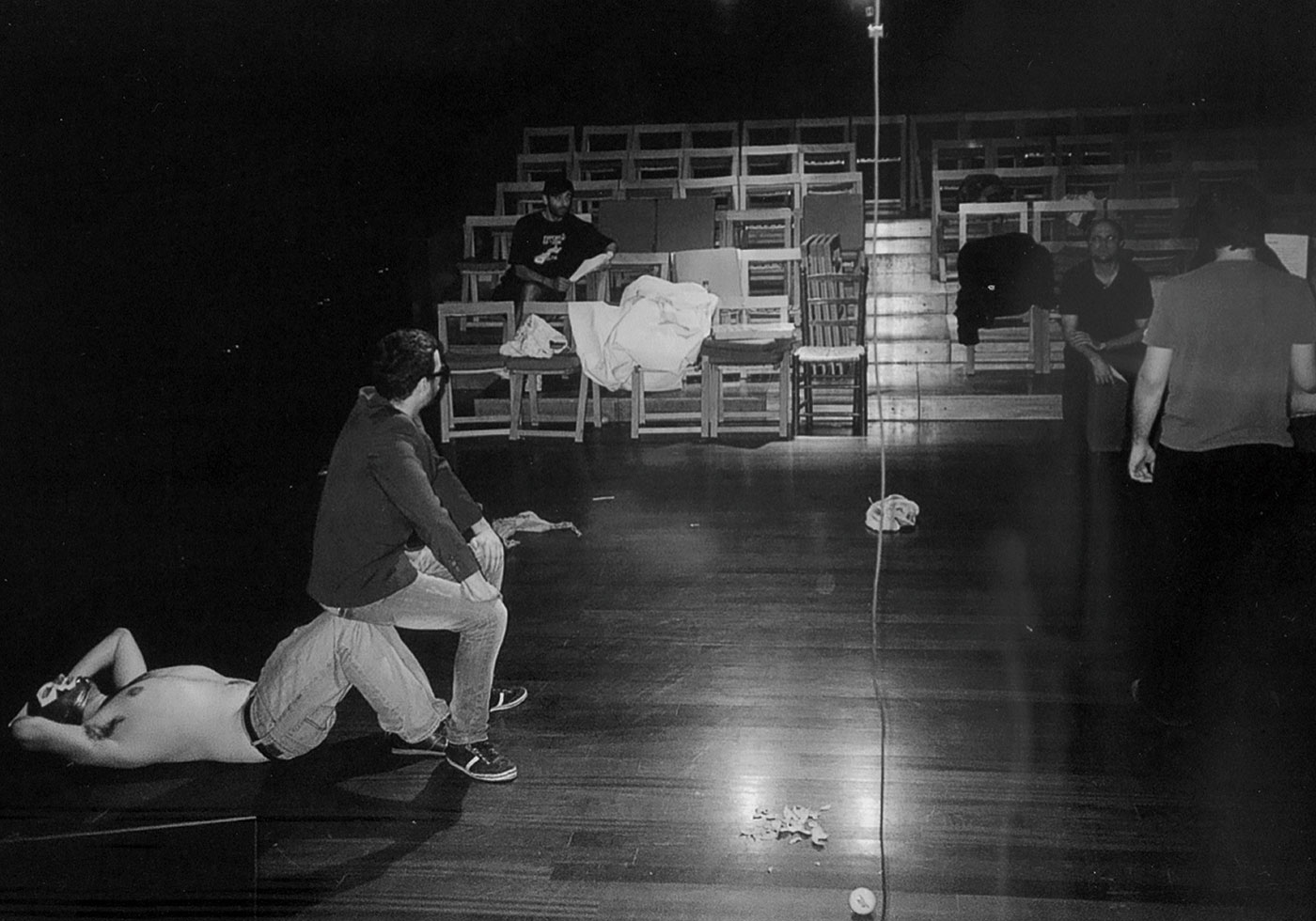
7. PRETEND TO BE MORE STUPID
This doesn’t mean not being stupid at all, and just pretending to be stupid: the point to stress is that however stupid you may be to start with, you should try to appear to be even more stupid.
The idea I want to develop here is concerned with art by projection.
This notion can be defined in the following way: artistic manifestations to which greater value is attributed than the artist intended.
Take the work of Van Gogh, for example.
From what I know of the history of art, and in the absence of information to the contrary, Van Gogh was not aware of the potential influence of his work, or even how novel his style was. You could argue that artists are never aware of these things when producing their work.
Van Gogh is a particularly bloody case. He took a naive view of his work, and wanted to paint like all the exciting painters he’d met in Paris.
Of course he wasn’t as naive as Rousseau, who once said to Picasso that they both were the best artists in the world—Rousseau in the Realist style, and Picasso in the Egyptian style.
But if our friend Vincent had lived longer, he would have ended up like Giorgio de Chirico, no doubt about it. Just take a look at his last work, in which he considered himself a Renaissance painter.
Though legal experts say ignorance of the law is no excuse for the offense, I believe that lack of intentionality diminishes the merit of the artist.
That doesn’t mean the work isn’t fantastic anyway, but that it is fantastic because of the value we project upon it, not because of the talent of the artist.
Value is projected onto different aspects of a work of art, ranging from a captivation with the life story of the artist (a delight of mythomaniacs) to fascination with the evocative power of the work.
I prefer intelligent artists over artists who have suffered a lot. Maybe because as an artist myself, I do not want to suffer all my life in order to be appreciated. It is a subjective choice, but a reasonable one.
8. KEEP YOUR WORD
My last name is Ortega, which has gitano2 overtones. I don’t know of any ancestor who was gitano, in fact, I don’t think any relative of mine even accepts that our name sounds like a gitano name.
I discovered the gitano relation on Google. If I searched for “Antonio Ortega artist” I’d find myself surrounded by toreros and flamenco cantaores.
Maybe that’s why I share the gitano conviction that a promise is sacred. Everyone knows that when a gitano person shakes your hand after making a deal, they are sealing the agreement. Not only will they respect the agreement, but they’ll stand by it, come hell or high water.
There’s a fundamental difference between respecting an agreement and standing by it. Standing by it adds a mortifying dimension, a tendency to dramatize, to take pleasure in suffering. In short, it means the promise will be kept, even if it’s part of a bad bargain.
Perhaps it’s because of this distant kinship that, for me, the sacredness of a promise has something mystical about it.
I wear a ring I bought in Istanbul. While I was there I didn’t fancy buying anything much, but I couldn’t leave Istanbul without experiencing the excitement of bartering.
So on the last day, I went to the bazaar and chose a ring from a stall that sold jewellery. I bartered with the stallholder for quite a while until we at last agreed on a price I found satisfactory. I paid with a bank note and waited for the change.
He made me a reduction on the price we had agreed upon.
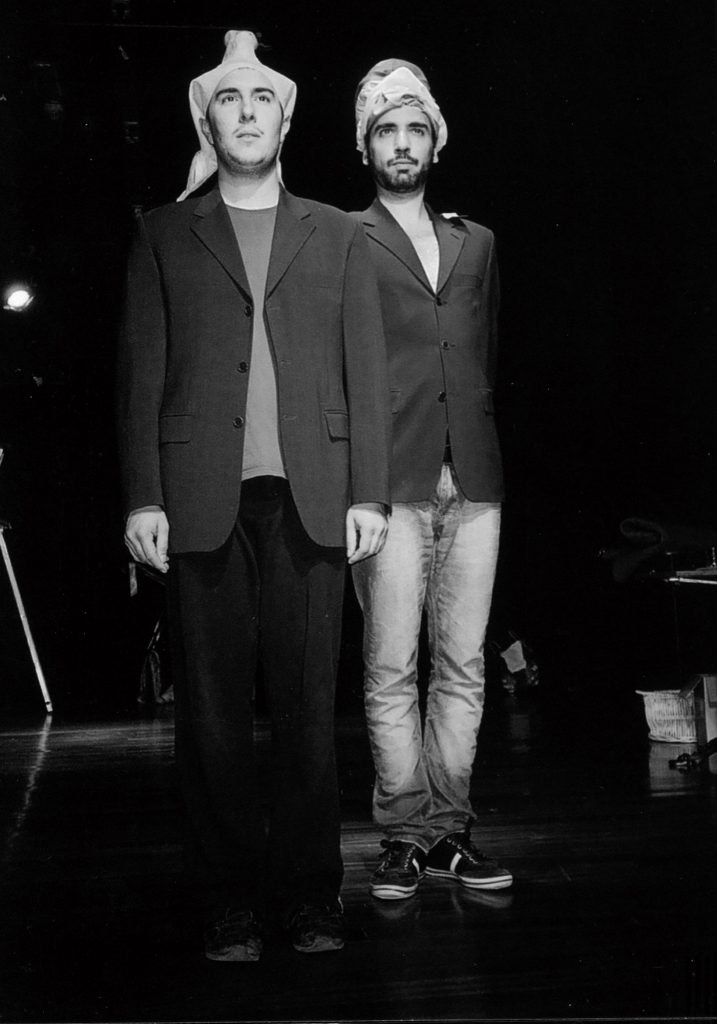
9. SHOW YOUR FACE
I used to live in South Wimbledon. When I was there I had a lot of time but not much money.
One of the few things I could do was visit the local city farm. Run by the government, it offered jobs to people on the fringes of society and provided education for families.
I soon realized I was making a nuisance of myself by going so often, so I decided to look for an excuse.
I was preparing an exhibition for Sala Montcada de la Fundació la Caixa (a Catalan bank), and the city farm had an animal sponsoring program. I used the money from the exhibition to sponsor Lucy, a Gloucester Old Spot pig, and they gave me a certificate made out in the name of “La Caixa.” Now I had an official document and an excuse for spending more time at the farm.
Lucy was pregnant. When I came to see her after staging my exhibition in Barcelona, she’d given birth to a litter of ten piglets. One was very puny and had a hard job competing with his siblings for milk, so they separated him from the others and raised him on a bottle. They called him Alan.
Alan was free to roam anywhere he wanted. He wasn’t shy with people, and rubbed himself against the visitors’ legs like a cat. He also seemed smart, and had bangs like Babe, the character in the film “Babe, the Gallant Pig.”
Alan’s nine brothers and sisters were taken off to a pig farm to be turned into sausages, or ham. But who could eat a pig with a name? As David G. Torres later wrote in the catalogue for the show, “it is very difficult to eat Alan with tarragon potatoes.”
So it is useful to have a name, even if only to arouse pity...
10. GIVE PRESENTS
I don’t know if you’ve ever wondered how they recruit spies.
In the year 2000, I met a spy.
After a scandal involving the fraudulent use of “reserved funds” to combat terrorism, and the subsequent, so-called “Anti-terrorist Liberation Groups case”, the Spanish government abandoned the members of the CESID (the Spanish intelligence agency) to their fate, later dissolving the organization.
One of these former agents fancied himself as a writer. His alias was “César Blasco” and he was in London under the protection of MI5 because he’d done British intelligence a few favors.
César lived in an apartment hotel in the wealthy Knightsbridge district.
I met him in the only cafe where you could get a cup of tea for a pound.
I’d gone to investigate whether they sold turrón (Spanish nougat) at Harrods, and if it was considered a luxury item. My wife and I then went for a snack. César was sitting at another table with a mobile phone. He was in a wheelchair. One thing led to another and we started chatting. César liked to boast although he seldom had the chance to talk. With me he had an audience that was all ears.
We met a few times in his room. I was an artist, he was a writer. I gave him a catalogue, and he gave me a manuscript titled Spies Have Hearts Too. It was a novel about the life of a spy.
It turned out that the book was something of an autobiography. In it, César tells of how he came to work in espionage. That’s the story I want to share with you now:
The story begins with Paesa, a spy at the United Nations in Geneva who doubled as a Consul for Sao Tomé and Príncipe (a tiny country in the Gulf of Guinea) for cover.
Paesa needed an assistant, and César became his recruit.
César had recently immigrated from Spain to Geneva. When he arrived in Switzerland he took whatever job turned up, and what turned up was work in the construction industry.
One day, as César was on top of a roof making repairs, he got in an argument with the owner of the house. Coincidentally, Paesa was walking past. As Paesa observed that little Spaniard with his sharp temper and fighting spirit, he seized the opportunity.
Paesa invited César to coffee.
The two became friends and, before long, Paesa found César a job with Spanish intelligence at the United Nations.
They often met informally. Whenever they hung out, Paesa would quiz César about his mates at work, about journalists, and the friendships he kept outside of work.
As time went by, Paesa gave César a magnificent watch.
César felt indebted and was keen to repay the generosity...
-
And let me stress, with all due modesty, that I support this advice and recommend you to put it into practice, regardless of whether you’re tall or short. ↩
-
Editor’s note: The Spanish word gitano translates as Gypsy. Gitano culture is a recognized influence within Spain, particularly within the south of the country. In this specific context, the term is deprived of pejorative nuance. ↩
